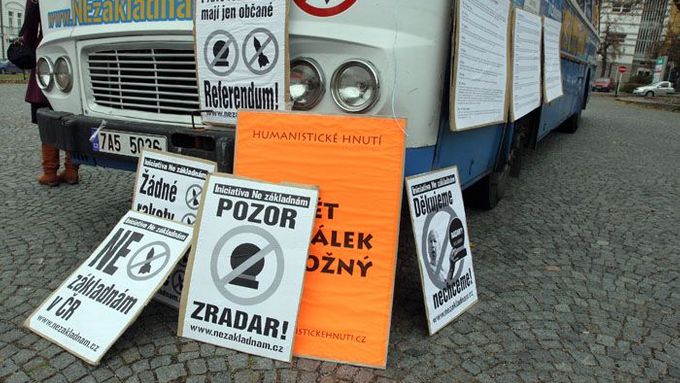Prague - Public debate about the American anti-missile base is an emotional game from the very beginning. Sensible arguments are being put aside.
This is according to Jan Hartl, head of STEM, who quotes the results of a state-funded poll his agency conducted at the end of April.
Three-quarters of Czechs polled admitted that their attitude towards the radar base relies on a "general feeling", and only one quarter claim to have factual arguments and knowledge of the matter that shape their opinion.
Hartl says it is therefore difficult to apply the rule "what goes around comes around" to generate the results the poller needs. "A single word in the poll question changes the response; all it takes is to change the context," the sociologist emphasises.
Feelings change throughout the week
Hartl thus managed to indirectly explain the possible reason for the different results of radar polls published by the Median and SC&C agencies last week.
First, Prime Minister Mirek Topolánek announced the SC&C results, where 39% of Czechs welcomed the radar while 53% opposed it. He presented the poll as proof that people no longer oppose the radar.

More from the Prague Monitor
Median's results were published on Sunday by Czech Television, showing that 18% of Czechs support the radar while 65% oppose it.
The different outcomes might result from the context in which the question was asked. SC&C started by posing suggestive questions on whether the Czech Republic can put up a defense against intercontinental rockets, while Median did not use questions like that.
Percentage according to the order
"Discussion about the radar resembles the period before entering NATO," Hartl says. Back then, it was also possible to find the exact number of NATO supporters needed by the politician who ordered the poll.
"Differently formulated questions concerning our entrance into NATO yielded positive responses ranging from 27%-64% of people," Hartl says.
Indifferent majority
The STEM results show that a little more than one-half of citizens consider the construction of the radar base to be a problem and a nuisance, which, nonetheless, does not really concern them.
Groups of hard-line radar supporters and opponents are of approximately the same size, and together comprise 40% of all residents.
This kind of distribution allows paradoxical results. CVVM, for example, regularly finds that nearly three-quarters of Czechs oppose the radar.
STEM, on the contrary, took advantage of the time after the Bucharest NATO summit to ask citizens: "Would you accept construction of an anti-radar base on your territory if it was clear that the base constitutes an important part of NATO defence and represents a commitment by our country towards our NATO allies?" Of those asked, 67% said yes.
More than four-fifths of coalition supporters would accept the radar within the NATO alliance, while three-fifths of ČSSD voters and almost half of KSČM supporters would not oppose it.
Adapted and republished by the Prague Daily Monitor
